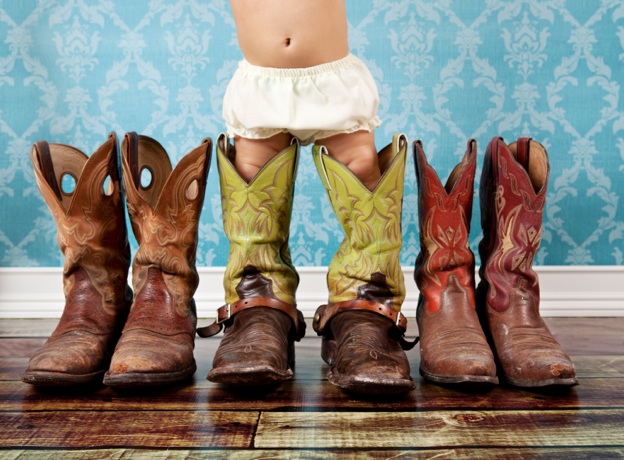SingaporeMotherhood | Preschooler & Up
June 2012
Precocious Puberty Explained

Reports earlier this year of a 10-year-old girl in Colombia having delivered a baby via Caesarean section made headlines the world over, and she’s not the only one. While the occasional child reaching puberty early isn’t terribly unusual, it is the average age at which children are budding that seems to have made a conspicuous drop through the years.
What Is Precocious Puberty?
As we know, puberty is the process whereby kids develop physically and emotionally into young men and women. It includes rapid growth of bones and muscles, changes in body shape and size, and the development of the body’s ability to reproduce.
[banner][/banner]
Usually, puberty starts to happen no earlier than about seven to eight years of age for girls and nine years of age for boys, although the current average age is about 10 for girls and 12 for boys.
The onset of signs of puberty earlier than seven to eight in girls and nine in boys is considered precocious puberty.
“It’s crazy. My mother had her first period when she was about 14, I had mine when I was 12, and my daughter already has breasts and she’s barely eight,” observes 35-year-old Janine Ho.
Telltale Signs
The signs include any of the following before age 7 to 8 years in girls:
• Breast development
• First menstrual period
• Pubic or underarm hair development
• Rapid height growth or growth spurt
• Acne
• ‘Mature’ body odour
The signs include any of the following before age 9 years in boys:
• Enlargement of testicles and penis
• Deepening voice
• Pubic, underarm, or facial hair development
• Rapid height growth or growth spurt
• Acne
• ‘Mature’ body odour
Causes Of Precocious Puberty
According to Associate Professor Fabian Yap, Senior Consultant and Head of the Endocrinology Service at KK Women’s and Children’s Hospital (KKH), the causes of precocious puberty in general include genetic and hormonal factors, nutritional excess and increased body fat.
There are two main types, known as Central precocious puberty and Peripheral precocious puberty.
In Central precocious puberty, the puberty process starts too soon, although the pattern and timing of the process are otherwise normal. For majority of children with this condition, there is no underlying medical problem and no identifiable reason.
“However,” adds Prof Yap, “children with a past history of cerebral palsy, meningitis or trauma are also prone to this. In rare instances, it may be due to a growth in the brain.”
Peripheral precocious puberty, which is less common, is caused by the release of estrogen or testosterone into the body because of problems with the ovaries, testicles, adrenal glands or pituitary gland. This may be due to a tumour in the glands that secrete sex hormones oestrogen or testosterone, or even exposure to external sources such as the creams or ointments prescribed in hormonal therapy.
Possible Complications
Growth spurts in a child with precocious puberty may have them being taller than their peers at first, but as bone growth stops at an earlier age than normal, they do not achieve their full height potential. Early intervention, especially when it occurs in very young children, can help them grow taller than if they were to go without treatment.
Some studies have also suggested that earlier puberty can slightly increase the risk of breast cancer, probably because it results in longer lifetime exposure to the hormones oestrogen and progesterone.
If you think that your child is showing signs of precocious puberty, make an appointment with your doctor to have it investigated. He or she may then refer your child to a paediatric endocrinologist, a specialist in this field.
As Prof Yap advises, “Treatment to suppress the progression of puberty is possible in select children with very early onset puberty and in those who mature rapidly. The need for treatment depends on individual circumstances. Furthermore, it is important to be assessed to exclude any underlying causes.”
The Psychological Impact
Going through puberty early can also be difficult for a child emotionally and socially. Girls can become moody and irritable. Boys can become more aggressive and develop a sex drive inappropriate for their age. As is the case with most adolescents, emotions and behaviour may become erratic in children with precocious puberty, and their young age makes it even harder to cope with.
A psychologist with the Psychology Service at KKH, Dr Amrit Kaur, tells us more about some of these issues:
• Children generally want to be the same as their peers, and early sexual development can make them appear different. Comparing themselves negatively to others can lead to high levels of negative emotion and low self-esteem. It may be exacerbated if they are bullied or teased because of their developing breasts or hairy legs. Such children may act out in school or at home, and in extreme cases, may present with symptoms of anxiety and depression.
• Another factor that may cause challenges with early developers is that their parents and teachers may view them as being more emotionally advanced and mature because they appear older. However, their cognitive and social development is usually in line with their peers, and lags behind their physical appearance.
• Children who develop early also tend to become targets of sexual advances at a much earlier age. Mentally and emotionally, these kids are no different from their undeveloped peers, and may be ill-equipped to handle the attention.
Mother of four adolescent children, Penny Finnegan, shares her story: “I was an early developer and couldn’t cope. I acted out – smashed up my room, attacked my sister; it kept getting worse till I was hurting myself, cutting my arms. My first overdose was at age 12. Luckily my mum got the doctor to have me assessed by a team of psychiatric nurses and they helped me find ways of working through it.”
How Parents Can Help
“While the challenges that come along with puberty can be viewed as almost necessary milestones on the road to adulthood, being of a particularly young age may heighten the problems,” says Dr Kaur.
“Parents should provide some extra support and seek assistance from a mental health professional if the child becomes exceedingly withdrawn, appears to be acting out or behaving more aggressively than usual.”
Remember to watch for signs that teasing or other difficulties associated with precocious puberty may be affecting your child emotionally. Common warning signs include poor grades, problems at school, loss of interest in daily activities and depression.
How parents cope with the issue can also determine how successfully a child will cope. The goal is to prevent them from dwelling on sexual development or developing a poor self-image or low self-esteem. If parents are positive, open and accepting, the child will similarly feel more confident about sharing their fears and feelings.
The Big Talk
Begin by giving the child a simple, truthful explanation about what’s happening. Explain that these changes are normal for older kids, but that his or her body has started developing a little too early. Keep your child informed about treatment and what to expect along the way.
Dr Kaur has the following suggestions:
• Before having the talk, look up the facts (development of breasts, pubic hair, wet dreams, periods, etc), and be careful to normalise these experiences. Young boys may be embarrassed about stains on sheets, or their suddenly strange-sounding voices and may be helped tremendously by the sensitive parent who helps them handle these appropriately.
• If you anticipate that either of you may be very uncomfortable, it might help to talk about it in the car or while engaging in an activity where you don’t have to make extended eye contact. You can start by talking a little about your own youth. Stories about how grandma or grandpa had this talk with you instill a sense of continuity and camaraderie with you.
• Most children become increasingly self-conscious about their appearance. Reassure them that the kids who appear ‘normal’ now will soon be experiencing the same thing. A little bit of corrective information and a lot of normalisation can go a long way in helping children come to terms with their changing body and reduce unnecessary shame.
• If puberty arises very early, your child may find it difficult to understand the facts you present, and you may have to simplify them dramatically. It is always useful to ask the child to explain it back to you in their own words so you get a sense of the extent of their understanding and can correct any misconceptions.
• This should not be a one-time conversation. A good book may be a valuable aid as it helps to ensure that your child gets more accurate information than he or she otherwise might get from consulting the Internet or peers.
All content from this article, including images, cannot be reproduced without credits or written permission from SingaporeMotherhood.
Follow us on Facebook, Instagram, and Telegram for the latest article and promotion updates.






